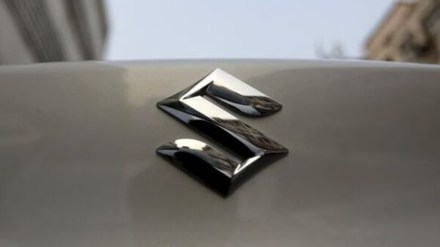Maruti Suzuki India posted better-than-expected earnings for the April-June quarter, aided by a sharp rise in other income, even as operating margins declined and domestic demand remained muted.
Maruti Suzuki Financials
The company reported a net profit of Rs 3,712 crore for the quarter, up 1.7% from Rs 3,650 crore in the same period last year, beating the Bloomberg consensus estimate of Rs 3,076 crore. The outperformance was largely driven by a jump in other income, which nearly doubled year-on-year (y-o-y) to Rs 1,823 crore from Rs 975 crore.
Revenue for the quarter rose 8% y-o-y to Rs 38,414 crore, surpassing analyst estimate of Rs 36,371 crore. However, on the operational front, earnings were weaker. Maruti’s earnings before interest, tax, depreciation and amortisation (Ebitda) fell 11.2% y-o-y to Rs 3,997 crore, with the Ebitda margin narrowing to 10.4% from 12.7% a year ago.
Total sales volume grew a modest 1.1% y-o-y but dropped 13% sequentially. While domestic passenger vehicle sales declined 4.5% during the quarter, the company saw a strong 37.4% rise in exports, helping it offset weakness in the local market.
“A decline in domestic sales of 4.5% was compensated by a robust 37.4% growth in exports, resulting in an overall sales volume increase of 1.1% for the quarter year-on-year,” said Rahul Bharti, senior executive officer – corporate affairs, Maruti Suzuki.
He said affordability remains a concern for many first-time car buyers, which continues to impact domestic demand. “The participation of first-time buyers in car buying continued to remain subdued, largely due to affordability issues,” Bharti said.
Inventory levels at dealerships remain under control, with around 33 days of stock, the company said.
On supply chain risks, Bharti noted that rare earth magnet availability remains a challenge, but the company is actively working to manage the situation. “Our engineers are working to mitigate it and ensure there is no impact. It’s a work in progress,” he said.
Bharti also commented on the upcoming corporate average fuel efficiency (CAFE) norms, expected to take effect from April 1, 2027. He said the final regulations are likely to be issued within one-to-two months.
“…all of us are hoping that the final regulation will be out so that we have clarity for the powertrains starting from April 1, 2027,” Bharti said.
Outlook
The company’s outlook remains closely tied to recovery in domestic demand and regulatory clarity on future emissions and fuel efficiency norms.
The company’s stock on the BSE closed at Rs 12,634.45 on Thursday, up 0.096% from the previous day’s close.
